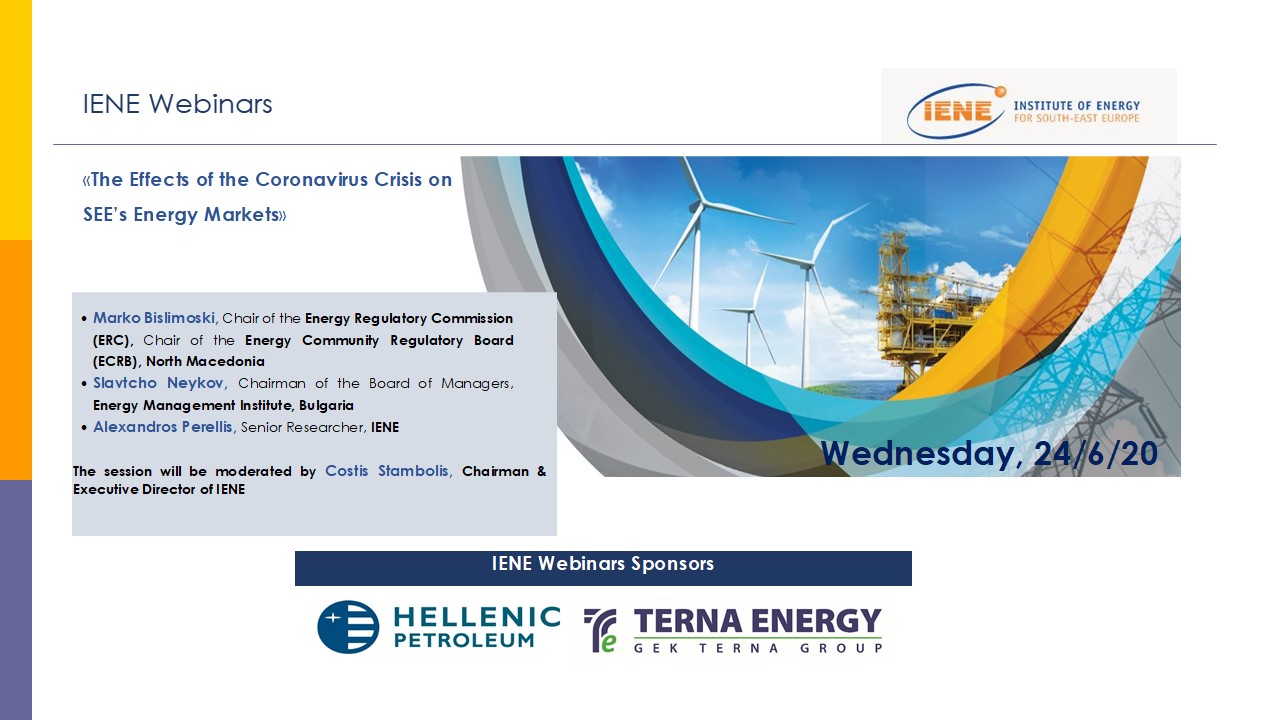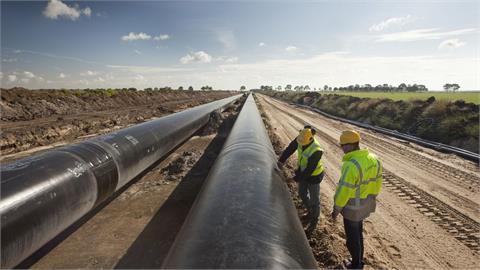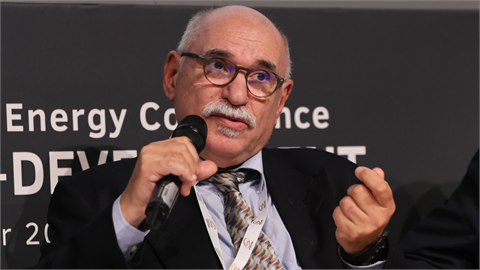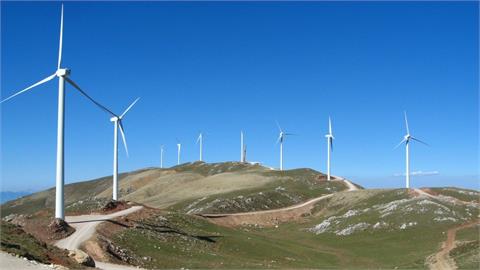Following an extensive discussion, hosted by IENE in its last webinar on June 24, between well placed energy experts from Bulgaria, Greece and North Macedonia on the electricity market situation in the region in the light of the ongoing coronavirus crisis, the picture which emerged was reassuring concerning their viability and long-term prospects.
This IENE webinar was part of a series of virtual events launched by the Institute in middle May in order to discuss the impact of the preventive measures taken, to contain the coronavirus pandemic, by the various countries in the region. Ten such Webinars have been organised so far and their content is available through IENE's account at YouTube.
The June 24th webinar was in the form of discussion between the panelists Mr. Marko Bislimoski, Chair of the Energy Regulatory Commission (ERC) of North Macedonia and Chair of the Energy Community Regulatory Board (ECRB), Mr. Slavtcho Neykov, Chairman of the Board of Managers, Energy Management Institute, Bulgaria and Mr. Alexandros Perellis, Senior Researcher at IENE, moderated by the Chairman of IENE, Mr. Costis Stambolis.
The main topics discussed included the effect, which the preventive measures for the mitigation of the spread of COVID-19 had on electricity demand and consumption, and how these affected the actual operation of the markets, at wholesale, retail and investment level. In this regard Mr. Marko Bislimoski presented the case of North Macedonia, in which he mentioned that demand remained at relatively normal levels despite the quarantine measures, as consumption moved from businesses to households, while he also mentioned that the most evident occurrence was the reduction of electricity market’s liquidity. Mr Slavtcho Neykov presented the progress of policy alignment and the reluctance of certain EU member states to adapt their policies with the European Green deal. Focusing on Bulgaria, he discussed the electricity mix of the future with regard to market disruptions like the occurrence of COVID-19. Mr Alexandros Perellis presented the case of Greece and also explained wholesale electricity price formulation in SEE Europe. He further discussed electricity demand trends and developments at regional level, making special reference to renewables and cross-border electricity trade.

Monthly Average Clearance Prices in SEE Electricity Markets (January-April of 2019 and 2020) Sources: IENE, HENEX, IPEX (GME), IBEX, OPCOM, HUPX, SEEPEX, CROPEX, EXIST (EPIAS)
Notes: *Wholesale electricity prices in April 2020 are used as an average for the period of April 1-26, ** TRY - € price equivalence is based on monthly average prices by ECB.
The session concluded with a discussion about infrastructure development in the region with special reference on electricity interconnectors and gas pipelines, as well as the development of baseload generation and renewables within the scope of the European Green Deal. In this context, Mr Neykov raised the issue of the viability of coal-fired baseload generation and the development of Bulgaria’s nuclear programme. Concluding the session, IENE’s chairman, Costis Stambolis, underlined the importance of the decarbonization policies pursued at EC level and Greece’s proactive approach following the government’s decision to terminate lignite use for power generation by 2028. Consequently, Greece is now drawing up plans for a more aggressive use of RES backed by higher gas use and energy storage.




